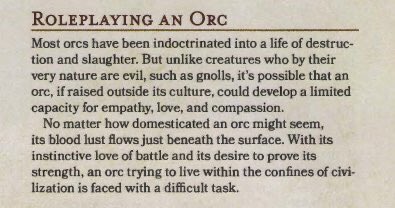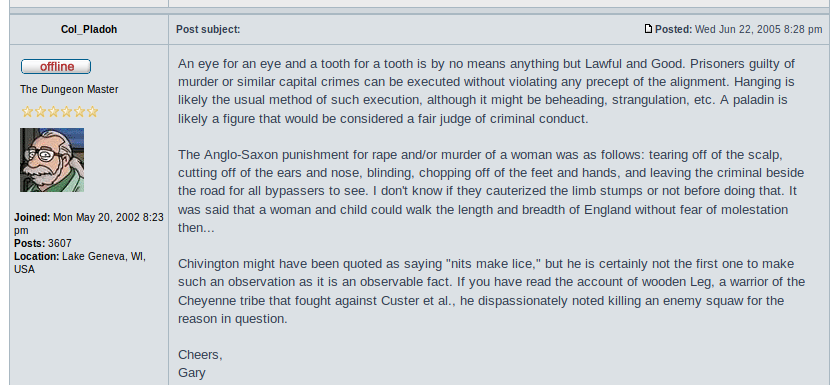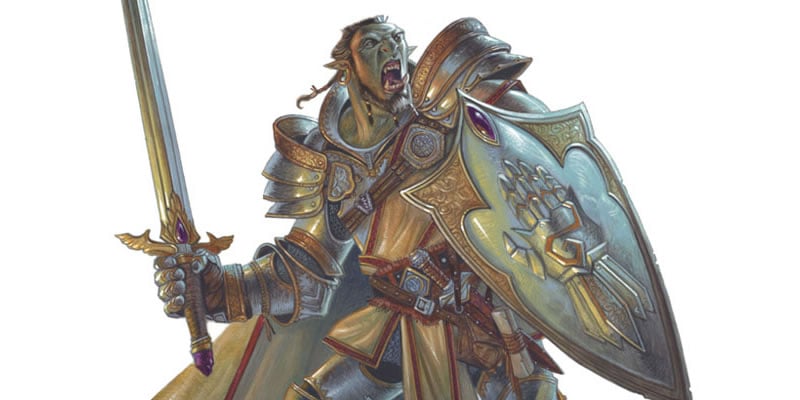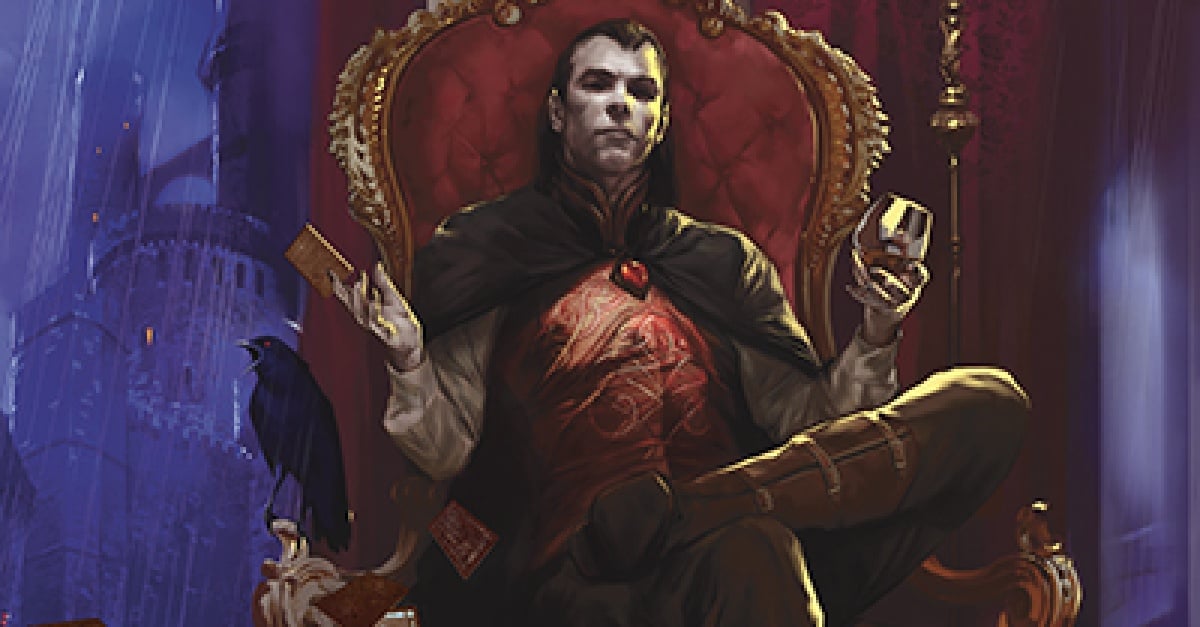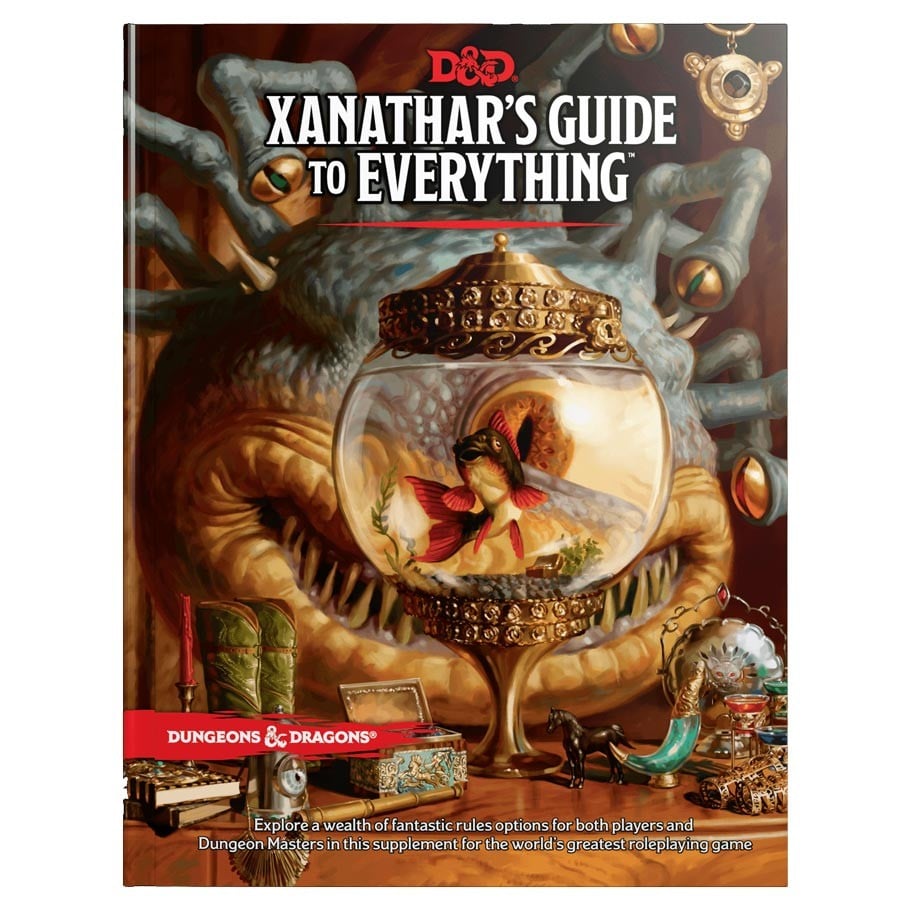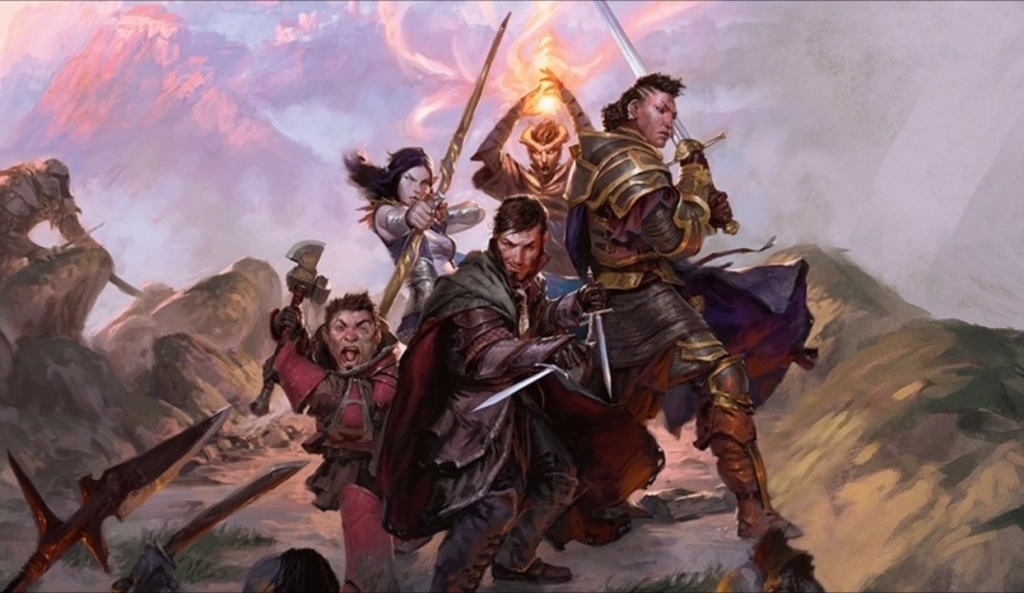D&D: WotC Announces Inclusivity Updates To Orcs, Drow, and Vistani
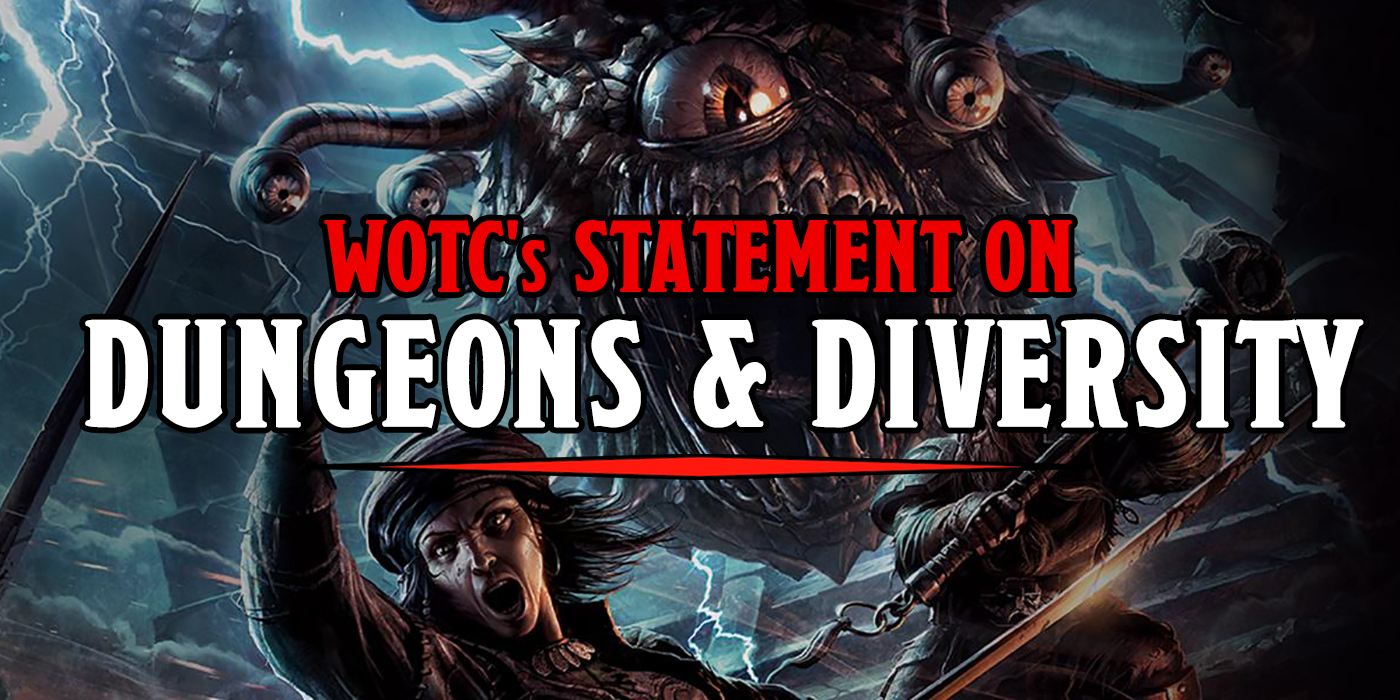

Wizards of the Coast released a statement yesterday announcing an official policy about diversity, as well as changes to Drow, Orcs, and Vistani.
In the wake of recent discussion about how certain peoples are portrayed in Dungeons & Dragons, Wizards of the Coast have released a statement announcing their plans to address racially insensitive material–specifically the way Orcs, Drow, and Vistani are portrayed, as well as a few other changes–alongside plans for D&D to actively work towards being a more diverse, inclusive space going forward. What does all of that mean? Well for one thing, it means that soon you’ll be able to decouple race and ability score bonuses, but more importantly it means that WotC is acknowledging the harm that depicting whole peoples as “savage and monstrous” can cause–language like the kind found in Volo’s Guide to Monsters (2016):
We’ve talked before about how language like this can perpetuate harmful ideas. It’s not that orcs are themselves racist, but rather the language used to describe them is the same language that’s been used to demean and other real world minorities. D&D has a history of some pretty ugly ideas that are baked in to some of the things that are legacies. Like this take on “lawful good” from the game’s creator:
Again, you can read whole essays on why saying “orcs are strong but savage, only capable of limited empathy, always struggling against an inborn, bestial bloodlust” leans on some pretty harmful real-world racial stereotypes. WotC acknowledges this in their statement (emphasis ours):
One of the explicit design goals of 5th edition D&D is to depict humanity in all its beautiful diversity by depicting characters who represent an array of ethnicities, gender identities, sexual orientations, and beliefs. We want everyone to feel at home around the game table and to see positive reflections of themselves within our products. “Human” in D&D means everyone, not just fantasy versions of northern Europeans, and the D&D community is now more diverse than it’s ever been.
Throughout the 50-year history of D&D, some of the peoples in the game—orcs and drow being two of the prime examples—have been characterized as monstrous and evil, using descriptions that are painfully reminiscent of how real-world ethnic groups have been and continue to be denigrated. That’s just not right, and it’s not something we believe in. Despite our conscious efforts to the contrary, we have allowed some of those old descriptions to reappear in the game. We recognize that to live our values, we have to do an even better job in handling these issues. If we make mistakes, our priority is to make things right.
But what does that mean, moving forward? Wizards of the Coast explains:
- We present orcs and drow in a new light in two of our most recent books, Eberron: Rising from the Last War and Explorer’s Guide to Wildemount. In those books, orcs and drow are just as morally and culturally complex as other peoples. We will continue that approach in future books, portraying all the peoples of D&D in relatable ways and making it clear that they are as free as humans to decide who they are and what they do.
Essentially, they’ll be taking the Eberron tack of at the very least removing intelligence penalties for Orcs, as well as removing things like “always evil alignment” from their statblocks so you can get cultures like the Lhazaar Principalities or anything that isn’t Menzoberranzan Mk II. Players will be just as likely to find a society of lawful good Orcs as they are chaotic evil Gnomes. They aren’t inherently evil any longer. No humanoid will be. But there’s more, new printings of Curse of Strahd and Tomb of Annihilation will have changed text, seemingly with an eye towards fixing the Vistani.
- When every D&D book is reprinted, we have an opportunity to correct errors that we or the broader D&D community discovered in that book. Each year, we use those opportunities to fix a variety of things, including errors in judgment. In recent reprintings of Tomb of Annihilation and Curse of Strahd, for example, we changed text that was racially insensitive. Those reprints have already been printed and will be available in the months ahead. We will continue this process, reviewing each book as it comes up for a reprint and fixing such errors where they are present.
As for stat bonuses and what sort of “playable folk” you are (again, the current trend seems to be moving away from “race” as a descriptor for if you’re an Elf, Dwarf, Human, or the like), a new book releasing later this year will provide players new options:
- Later this year, we will release a product (not yet announced) that offers a way for a player to customize their character’s origin, including the option to change the ability score increases that come from being an elf, a dwarf, or one of D&D’s many other playable folk. This option emphasizes that each person in the game is an individual with capabilities all their own.
This is likely the second big book due out in November. And while the confirmation of a new way to customize your character’s origin is an exciting thing for the game, and indicative of something like a Xanathar’s Guide 2, it’s a) an optional rule, and b) a rule that folks who don’t buy the book won’t have immediate access to. As some folk online have put it “the PHB isn’t changing, but you can buy the anti-racism DLC if that’s something you’re into.”
But that’s just one of many planned changes. The Vistani have also been a problem–and a puzzling one at that. In 4th Edition, their depiction was much different from the stereotype that we have in 5th Edition. As mentioned Curse of Strahd is changing, but there are two upcoming books that feature the Vistanis as well:
- Curse of Strahd included a people known as the Vistani and featured the Vistani heroine Ezmerelda. Regrettably, their depiction echoes some stereotypes associated with the Romani people in the real world. To rectify that, we’ve not only made changes to Curse of Strahd, but in two upcoming books, we will also show—working with a Romani consultant—the Vistani in a way that doesn’t rely on reductive tropes.
The consultant mentioned is just one example of further steps WotC is taking–there are plans for more sensitivity readers, and more diverse hiring in general:
- We’ve received valuable insights from sensitivity readers on two of our recent books. We are incorporating sensitivity readers into our creative process, and we will continue to reach out to experts in various fields to help us identify our blind spots.
- We’re proactively seeking new, diverse talent to join our staff and our pool of freelance writers and artists. We’ve brought in contributors who reflect the beautiful diversity of the D&D community to work on books coming out in 2021. We’re going to invest even more in this approach and add a broad range of new voices to join the chorus of D&D storytelling.
This announcement and planned changes follows a recent push by WotC to cull some of its more “racially insensitive” cards from Magic: the Gathering. It might not be the big sweeping change that everyone is clamoring for, but it’s a first step–hopefully the first of many towards getting D&D align with its values: that D&D is a game for everyone.
Let us know what you think in the comments, and happy adventuring out there, everyone!

